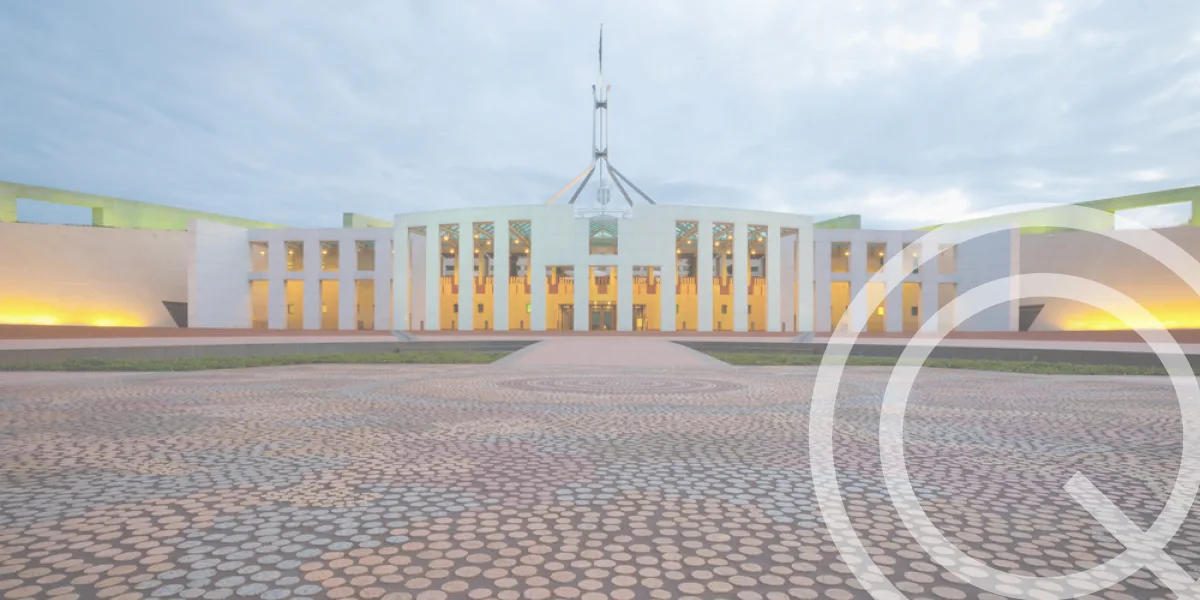On 30 November 2021, Sex Discrimination Commissioner Kate Jenkins handed down the Australian Human Rights Commission’s (AHRC) report following its Independent Review into Commonwealth Parliamentary Workplaces (the Report).
The Report found that 77% of people in Commonwealth Parliamentary Workplaces (CPWs) had either experienced, witnessed or heard about bullying, sexual harassment and/or actual or attempted sexual assault within CPWs. Thirty-seven percent (37%) of people currently in CPWs have personally experienced bullying, 33% have personally experienced sexual harassment and 1% have experienced actual or attempted sexual assault. The Report made 28 recommendations, divided under the five principles of leadership; diversity, equality and inclusion; performance; accountability; and safety and wellbeing. The Commissioner has said that the recommendations should be implemented, in their entirety, over the course of 18 months in an effort to create a safer and more respectful culture in CPWs.
The recommendations range from the establishment of Codes of Conduct for Parliamentarians and Parliamentarians’ Staff and the creation of an Independent Parliamentary Standards Commission, to provide responses to reports of bullying, sexual harassment and sexual assault within CPWs and enforce the Codes of Conduct, to a 10 year strategy to achieve gender balance and diverse representation across all parliamentary roles and portfolios.
The Report comes on the back of the recent AHRC Respect@Work report and at a time where there are increasing expectations within the private sector of transparency and openness in relation to addressing workplace misconduct. This was highlighted, for example, by KPMG’s recent disclosure that it substantiated 27 complaints of workplace misconduct in the last financial year.[1]
There are myriad benefits for any employer to undertake a workplace review, often referred to as a workplace culture review, such as that commissioned by Parliament. Principally, a workplace review is a proactive and forward looking process that allows a business to assess its current state and plan for the future. It also encourages engagement from employees, giving them a sense of inclusivity and a voice in shaping a positive workplace culture for the business.
The cost of poor workplace culture can be significant for those in the workplace, as demonstrated by the Report. For businesses there is also an adverse impact on their bottom line as highlighted in the Report:
A ‘conservative estimate’ from Deloitte Access Economics found that workplace sexual harassment also costs the Australian economy an estimated $3.8 billion in 2018. Bullying is estimated by the Productivity Commission to cost Australian employers and the economy between $6 and $36 billion annually.
The Report has shed light on the workplace culture within CPWs, an unusual model comprising of multiple different workplaces with employees working under multiple different employment arrangements. While some of the recommendations are specific to the needs of CPWs, for example the establishment of a Code of Conduct (something most businesses already have), other recommendations are equally applicable to workplaces within corporate Australia, such as setting goals in relation to diversity or ensuring employees have the requisite skills and knowledge to respond to misconduct.
Ultimately, ensuring a safe and respectful workplace is in the best interests of any business, whether public or private, and a workplace culture review is an effective and worthwhile exercise in laying the foundations for that safe and respectful workplace and in providing a blueprint for creating a successful and happy workforce.
As the Report concludes, the review that was undertaken has given a “firm basis for an historic legacy this parliament can leave, creating stronger parliamentary workplaces for the future”. Any workplace culture review is the start of a process. The challenge for employers, and in this case for Parliament, is making the required change.
1 Australian Financial Review, 30 August 2021






